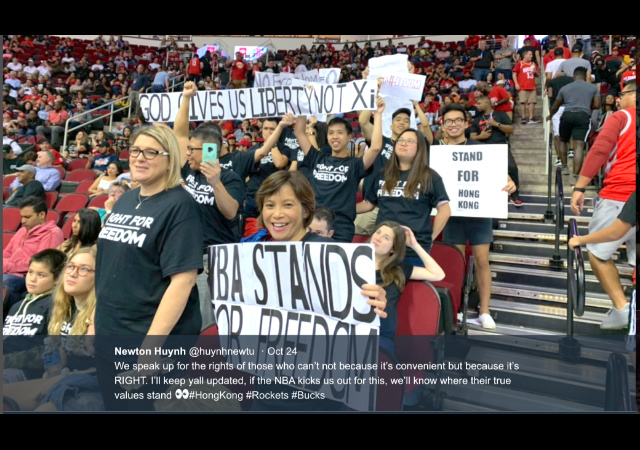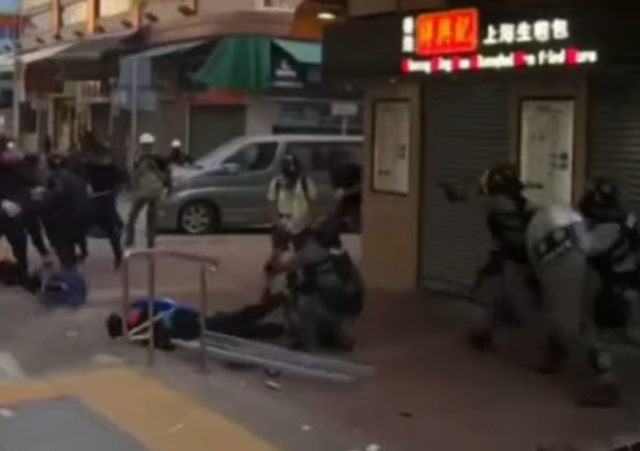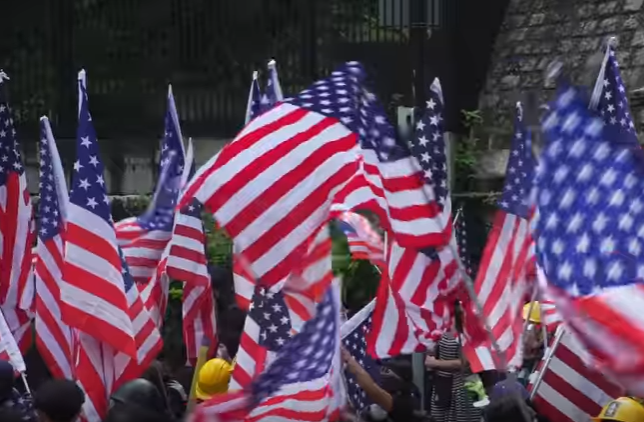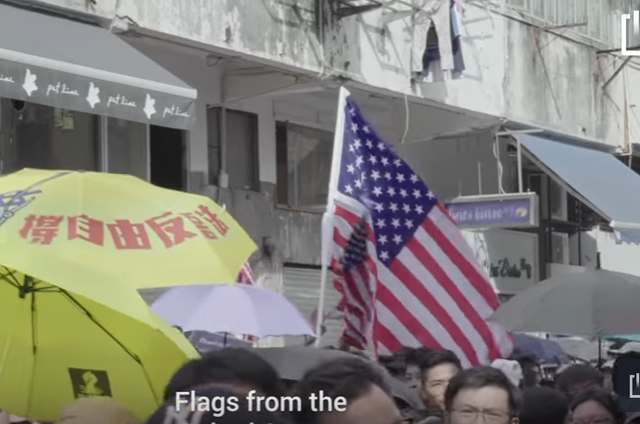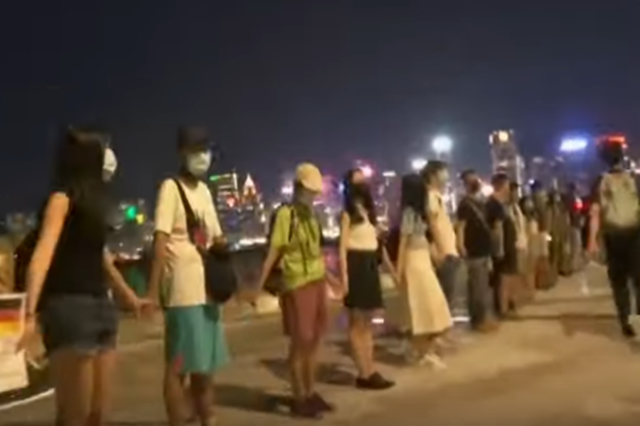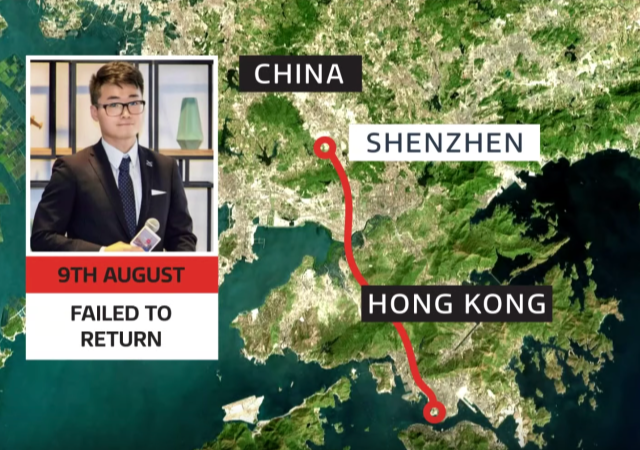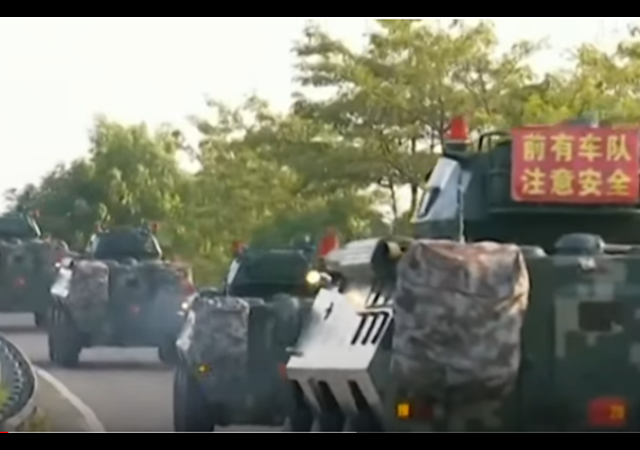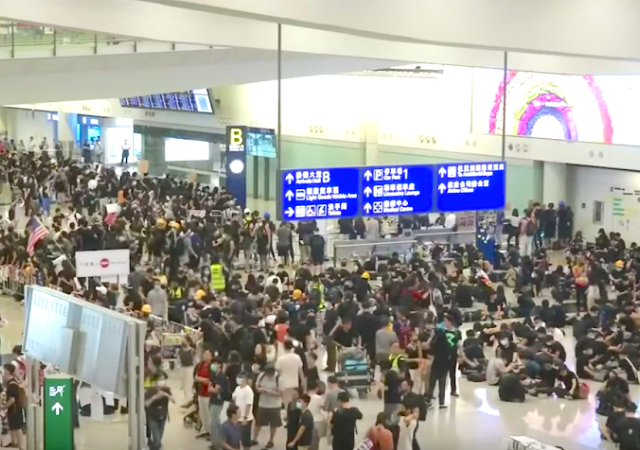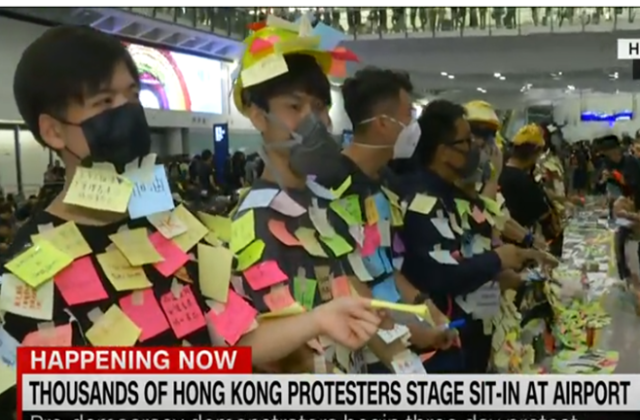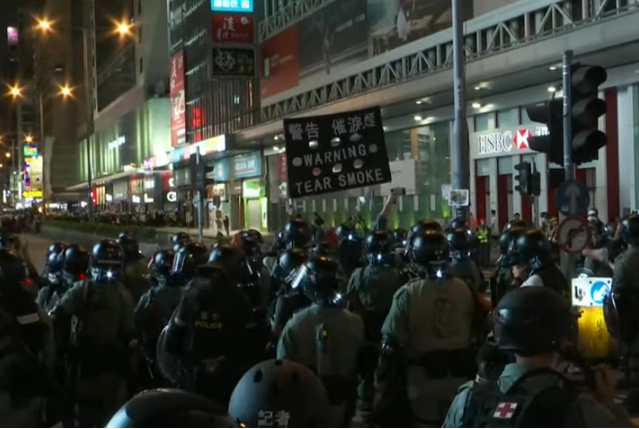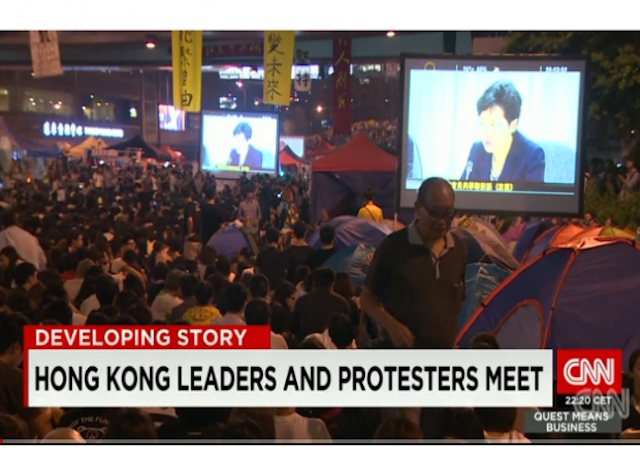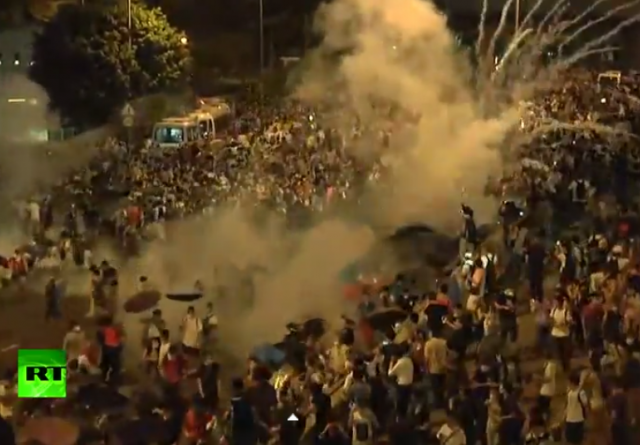My husband and step-daughter are touring Asia, so
I asked them what the coverage of the Hong Kong protests has been like.
Instead of sending out officials and experts to offer false assurances, the Chinese stations simply black out the reports about the demonstrations. However, my husband indicates that many people outside of China are closely following the developments in the international fiscal center.
The demonstrations continue unabated.
In fact, the latest round was inspired by a little political candor from C. Y. Leung, the Chief Executive of the Hong Kong Special Administrative Region who is the focus of protesters' ire.
Many were angered by Mr Leung's comments in an interview on Monday, where he said fully democratic elections would lead to populist policies, as poorer residents would have a dominant voice in politics.
"If it's entirely a numbers game and numeric representation, then obviously you would be talking to half of the people in Hong Kong who earn less than $1,800 (£1,110) a month," he said.
These startlingly frank remarks have not gone down well with many demonstrators, who see it as proof that the political system is rigged on behalf of the rich, the BBC's Juliana Liu in Hong Kong reports.
It tallies with the narrative of the city as a place where the gap between rich and poor - which is one of the highest in Asia - is rising, our correspondent adds.
A CNN report describes the latest approach by Hong Kong's officials: Invite the students in to talk, and give them a lecture on law while offering to do a report to send to Beijing. The interaction of the "t-shirts" versus "the suits" was played on a big screen,
so that the demonstrators could view the dialog.

